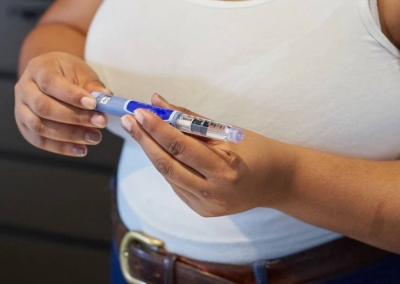792 Views
Ph: DR-: Supporting Benin in its governance and anti-corruption efforts
Released in February 2023, the International Monetary Fund (IMF) diagnostic report aims to identify vulnerabilities to corruption that could harm Benin’s development agenda and offer recommendations to address them according to a statement released by the World Bank in Benin. At the request of the Benin authorities, the IMF conducted a governance diagnosis in 2022. The mission team included representatives from the IMF’s Fiscal Affairs, Legal, and Monetary and Capital Markets Departments. The diagnosis took place in two stages: a remote mission in June 2022, followed by a two-week mission on site in September 2022.
Aline ASSANKPON
The report on the Governance diagnosis was published in February 2023 on the website of the Ministry of Economy and Finance and is now also available on the IMF website (in French and in English). Since the end of the mission in September 2022, discussions have continued and complementary technical assistance activities have taken place. The authorities intend to use the report’s recommendations as a source of inspiration for their own national action plan and for updating their commitments under the current economic and financial program, with the support of the Extended Credit Facility (ECF) and Extended Credit Mechanism (MEDC) of the IMF.
Accordingly, commitments relating to governance, aimed at strengthening the anti-corruption framework and the rule of law, have already been integrated into the programme, following the second review of the program which took place in May 2023.
The diagnosis addressed the functions of the state most relevant to economic development that are covered in the IMF’s 2018 Framework for Enhanced Engagement on Governance (public finance governance, financial sector supervision, market regulation and state of law, as well as the fight against money laundering (AML) and the financing of terrorism (FT).
Central bank governance and operations were not covered as Benin is a member of the West African Economic and Monetary Union (UEMOA). The Government is strongly committed to the success of the diagnosis. After his re-election in 2021, the President of the Republic, Patrice Talon, made the improvement of governance the first axis of the Government’s Action Program (PAG-2021-2026), in line with the efforts already undertaken since 2016.
The IMF team observed that governance in Benin had made substantial progress in recent years in several areas. With regard to public finance management, the transition to program budgets in accordance with WAEMU guidelines has been a success, supported by a fully integrated government financial information system. Budget transparency has improved, as evidenced by Benin’s ranking on the 2021 Open Budget Survey’s “Transparency” indicator – the second country in Africa with a score of 65 out of 100, behind South Africa with a score of 86.
Benin is leading the way in Francophone Africa for the implementation of internal control and audit reforms. A Court of Auditors has been set up and is being operationalized. The public procurement framework has benefited from a complete overhaul. In the area of tax policy, better governance of tax expenditures is to be welcomed. Similarly, the updating of the legal framework and the adoption of an action plan to strengthen the fight against money laundering have led to significant progress in the field of money laundering and terrorist financing. The rule of law has been strengthened through better accessibility of legislation, the creation of commercial justice and the development of e-procedures.
However, there are still margins, mainly to: further improve the legal and institutional framework for the fight against corruption; strengthen transparency in areas of critical importance such as disciplinary powers and appointment procedures applicable to the judiciary, and strengthen capacity and analytical tools in certain areas.
The recommendations made by the IMF in the governance diagnostic cover a wide spectrum. For example, the report proposes measures to combat the perception of interference in the judicial system and suspicions of corruption against judges through greater transparency on the promotion of magistrates and on the sanctions imposed on judges for acts of corruption.
The IMF team also made far-reaching recommendations to improve the legal and institutional framework for the fight against corruption. First of all, the authority and legitimacy of the Court for the Repression of Economic Crimes and Terrorism (CRIET), created in 2018, would be reinforced by the publication of its judgments and related statistics.
The effective establishment of the High Commission for the Prevention of Corruption, created by a law of 2020, remains an important step, which remains to be implemented. Finally, significant improvements in the legal framework for the fight against corruption are necessary to ensure: sufficient protection for whistleblowers; an adequate regime relating to conflicts of interest and a framework applicable to asset declarations, including an effective obligation to submit such a declaration for politicians and senior civil servants, beyond the already existing constitutional obligation which applies to a very limited number of political decision-makers (the President and members of the Government).


